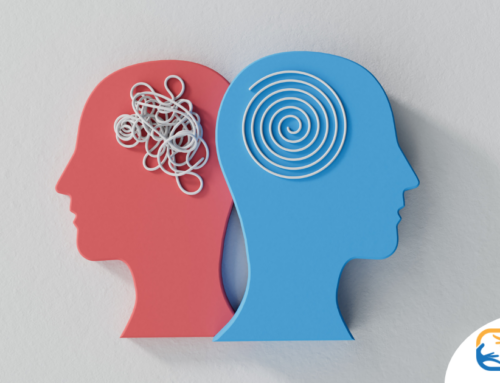Horticulture therapy, also known as ‘green therapy’ or ‘garden therapy,’ is a healing treatment that utilizes plants and gardening activities. It’s especially helpful for individuals with dementia who often experience cognitive decline and behavioral issues. Discover the benefits of horticulture therapy in dementia care with WellSprings Home Care’s Garden Connections program in West Chester, PA.
Dementia is a prevalent neurodegenerative disease that impacts millions of people globally. The condition presents a range of symptoms, including memory loss, confusion, mood swings, and communication difficulties, posing challenges for both individuals with dementia and their caregivers.
Horticulture therapy has emerged as an effective approach to dementia care, improving the quality of life for individuals with dementia by providing purpose, relaxation, and reducing agitation. In West Chester, PA, WellSprings Home Care offers the “Garden Connections” program, which engages individuals with dementia in gardening and other outdoor activities such as bird watching and nature walks. This program provides therapeutic benefits through plant care, tending to vegetable gardens, and connecting with nature.
Benefits of Horticulture Therapy to individuals with dementia
The Garden Connections program at WellSprings Home Care is highly adaptable and customizable to the unique needs of each client. Working collaboratively, caregivers and horticulture therapists create personalized plans tailored to the individual’s abilities, interests, and goals.
- Gardening activities offered through horticulture therapy provide a sense of purpose for individuals with dementia. Feelings of isolation and boredom can be common among those with dementia, but gardening offers a tangible sense of accomplishment and pride in their work. This is particularly beneficial for individuals who have lost their sense of identity and purpose as their disease progresses.
- Studies have shown that horticulture therapy is effective in reducing agitation and anxiety in individuals with dementia. Spending time in nature and engaging in gardening activities can have a calming effect on the mind and body, promoting relaxation and reducing stress levels. Horticulture therapy offers a natural, non-pharmacological way to manage behavioral symptoms and enhance the overall well-being of individuals with dementia.
- The Garden Connections program at WellSprings Home Care fosters socialization and community engagement for individuals with dementia. Social isolation is a common experience for individuals with dementia, but gardening activities can provide a platform for social interaction, allowing individuals to connect with others who share similar interests and passions. Horticulture therapy can help to reduce feelings of loneliness and enhance overall quality of life by promoting socialization and a sense of community.
- Horticulture therapy not only improves mental health outcomes for individuals with dementia, but it also has physical health benefits. Gardening activities can help enhance strength, balance, and coordination, which are crucial for maintaining independence and reducing the risk of falls. Through horticulture therapy, individuals with dementia can stay active and engaged, leading to improved physical health and overall well-being.
WellSprings Home Care takes pride in offering personalized and top-quality care to individuals with dementia and their caregivers. The Garden Connections program is a prime example of this commitment, delivering affordable and accessible services tailored to meet the distinct needs of each client. With a team of highly trained horticulture therapists and caregivers, they provide exceptional care and support, whether on a full-time or occasional basis.
Apart from the Garden Connections program, WellSprings Home Care provides an extensive range of services tailored to meet the specific needs of each client. These include medication management, transportation, and personal care assistance, among others. Their team of experts offers compassionate and specialized care, acknowledging that each client’s needs are different. They prioritize care with reliability and empathy, recognizing that every individual’s needs are unique and tailoring their services accordingly, whether you require occasional support or full-time care.
Benefits of Horticulture therapy to individuals with dementia and their caregivers
Horticulture therapy is a powerful tool for individuals with dementia and their caregivers. By fostering a sense of purpose, promoting relaxation, and reducing agitation, horticulture therapy can significantly improve the quality of life for individuals with dementia and make caregiving less stressful and more fulfilling. The Garden Connections program at WellSprings Home Care is a shining example of the benefits of horticulture therapy in dementia care.
- Horticulture therapy not only benefits individuals with dementia, but also their caregivers. Caregiving can be a challenging and stressful job, and horticulture therapy can provide a much-needed break from the daily stresses of caring for a loved one with dementia. Gardening activities can be a source of enjoyment and relaxation for both the individual with dementia and their caregiver, allowing them to connect with each other in a meaningful way and improving their overall well-being.
- Horticulture therapy can also foster a stronger relationship between individuals with dementia and their caregivers. Engaging in gardening activities together can provide a shared experience that deepens their connection and improves communication. This can help caregivers better understand the needs and preferences of their loved ones with dementia, leading to a more positive and fulfilling caregiving experience for both parties. This can be especially important for caregivers who may struggle to connect with their loved one due to the cognitive and behavioral changes associated with dementia.
Overall, horticulture therapy is a valuable tool for individuals with dementia and their caregivers. By providing a sense of purpose, promoting relaxation, reducing agitation, improving physical health outcomes, and fostering socialization and community engagement, horticulture therapy can improve the quality of life for individuals with dementia and make caregiving less challenging and more rewarding.
Conclusion
Discover the benefits of horticulture therapy for individuals with dementia and their caregivers with WellSprings Home Care, a leading provider of horticulture therapy services in West Chester, PA. Their Garden Connections program is a shining example of the positive impacts of horticulture therapy in dementia care. If you or a loved one is struggling with dementia, reach out to WellSprings Home Care for support and guidance in exploring the benefits of horticulture therapy.
In summary, horticulture therapy provides a powerful tool for enhancing the quality of life of individuals with dementia and their caregivers through gardening activities and nature-based interventions. It can reduce stress and improve well-being. For those in West Chester, PA, WellSprings Home Care’s Garden Connections program is a great resource for exploring the benefits of horticulture therapy in dementia care.






